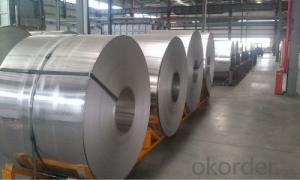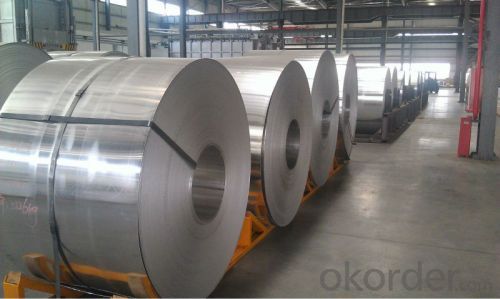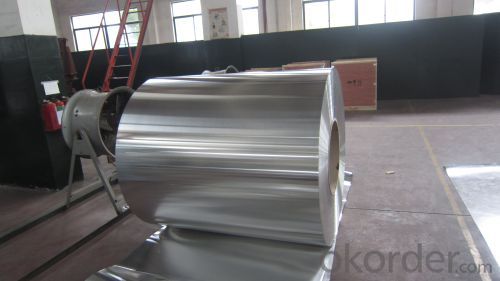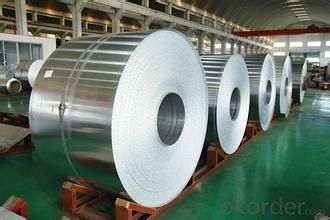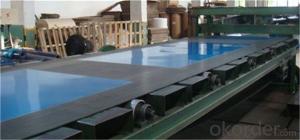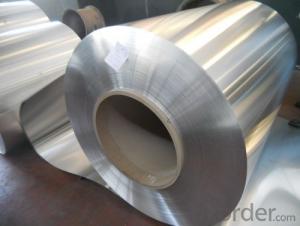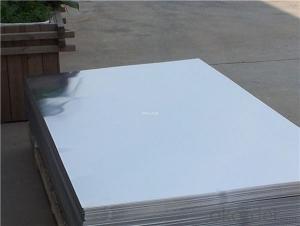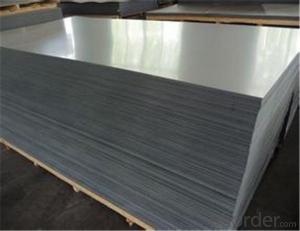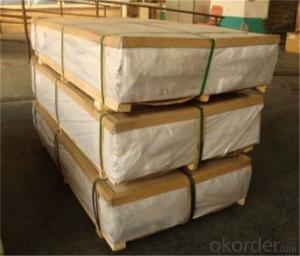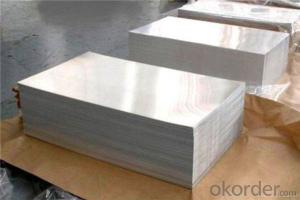Aluminum Sheets in Utah - Aluminum Sheet 1050 1.2mm 3mm 6mm Thick
- Loading Port:
- Shanghai
- Payment Terms:
- TT OR LC
- Min Order Qty:
- 5 m.t.
- Supply Capability:
- 100000 m.t./month
OKorder Service Pledge
OKorder Financial Service
You Might Also Like
Specification
PRODUCTS ADVANTAGE:
1: Thousands of already-made extrusion moulds are free for customer;
2: Any surface treatment is acceptable to make to meet your needs;
3: Strict quality control for your goods, very little scratch;
4: Free surface and both edges of profiles are smooth and with no burr;
5: Standard alloy composition;
PRODUCTS CHEMICAL COMPOSITION:
| Alloy | Chemical Composition % | ||||||||||
| Si | Fe | Cu | Mn | Mg | Cr | Zn | Ti | Others | Al | ||
| Single | Tol | ||||||||||
| 1060 | 0.25 | 0.35 | 0.05 | 0.03 | 0.03 | - | 0.05 | 0.03 | 0.03 | - | 99.6 |
| 2011 | 0.4 | 0.7 | 5.0-6.0 | - | - | - | 0.3 | - | 0.05 | 0.15 | Remain |
| 2014 | 0.5-1.2 | 0.7 | 3.9-5.0 | 0.4-1.2 | 0.2-0.8 | 0.1 | 0.25 | 0.15 | 0.05 | 0.15 | Remain |
| 2024 | 0.5 | 0.5 | 3.8-4.9 | 0.3-0.9 | 1.2-1.8 | 0.1 | 0.25 | 0.15 | 0.05 | 0.15 | Remain |
| 3003 | 0.6 | 0.7 | 0.05-0.2 | 1.0-1.5 | - | - | 0.1 | - | 0.05 | 0.15 | Remain |
| 5052 | 0.25 | 0.4 | 0.1 | 0.1 | 2.2-2.8 | 0.15-0.35 | 0.1 | - | 0.05 | 0.15 | Remain |
| 6060 | 0.3-0.6 | 0.1-0.3 | 0.1 | 0.1 | 0.35-0.6 | - | 0.15 | 0.1 | 0.05 | 0.15 | Remain |
| 6061 | 0.4-0.8 | 0.7 | 0.15-0.4 | 0.15 | 0.8-1.2 | 0.04-0.35 | 0.25 | 0.15 | 0.05 | 0.15 | Remain |
| 6063 | 0.38-0.43 | 0-0.25 | 0.1 | 0.1 | 0.5-0.6 | 0.1 | 0.1 | 0.1 | 0.05 | 0.15 | Remain |
| 6082 | 0.7-1.3 | 0.5 | 0.1 | 0.41 | 0.6-1.2 | 0.25 | 0.2 | 0.1 | 0.05 | 0.15 | Remain |
| 6463 | 0.2-0.6 | 0.15 | 0.2 | 0.05 | 0.45-0.9 | - | 0.05 | - | 0.05 | 0.15 | Remain |
| 7003 | 0.3 | 0.35 | 0.2 | 0.3 | 0.51 | 0.2 | 5.0-6.5 | 0.2 | 0.05 | 0.15 | Remain |
| 7005 | 0.35 | 0.4 | 0.1 | 0.2-0.7 | 1.0-1.8 | 0.06-0.2 | 4.0-5.0 | 0.01-0.06 | 0.05 | 0.15 | Remain |
| 7075 | 0.4 | 0.5 | 1.2-2.0 | 0.3 | 2.1-2.9 | 0.18-0.28 | 5.1-6.1 | 0.2 | 0.05 | 0.15 | Remain |
PRODUCTS DETAIL:
| Brand name | Bengal Aluminum |
| Aluminum products | Aluminum profile,Thermal break profile,Aluminum bar,Aluminum tube/pipe, Aluminum sheet,Aluminum heat sink section,Aluminum curtain wall,Aluminum handle,Aluminum frame,Aluminum rail,Aluminum accessory |
| Thickness | Mill finish profile thickness:0.7mm-3mm |
| Anodizing film thickness:over13μ | |
| Power coating film thickness:over13μ | |
| Length | General length:0-6m |
| Meet customers requirement | |
| Shape | Round,Flat,Square,Oval,Triangle,Pentagon, Hexagon,T,L, or customized requirement available |
| Surface treatment | Powder coating,Anodizing,Sand blasting, wood grain,electrophoresis, polishing,PVDF,etc |
| Deep process | CNC,Drilling,Milling,Bending,Cutting,Welding,etc |
| Colour | Silver, bronze,Black,Champagne,gold,White,Grey,Green,etc |
| Temper | T3-T8, O-H112 |
| Application | Windows and doors frame,Curtain wall,Furniture,Kitchen cabinet door,LED light,ceiling,machine,fences,Construction,Industrial,etc |
| Lead time | 8-20 days after the sample is confirmed by buyer |
| Mould fees | Free of charge if use existing mould |
| Charged by the size if open up a new mould | |
| Packing details | Packed with plastic protective film to protect each piece inside |
| Wrap to be bundles by waterproof craft paper | |
Packing ways depend on the profile goods design, we can meet customized requirement |
PACKAGING AND SHIPPING:
Your aluminum extrusion profile goods are always packaged to ensure that thay arrive safely on their long journey to you. The best packaging solutions depend on the design.We provide our customers with clear packaging consuting services. Normally, the products will be packed with plastic protective film to protect each piece inside and wrap to be bundles by waterproof craft paper outside.
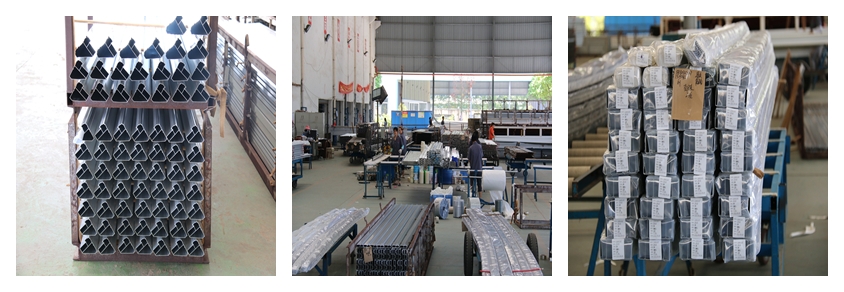
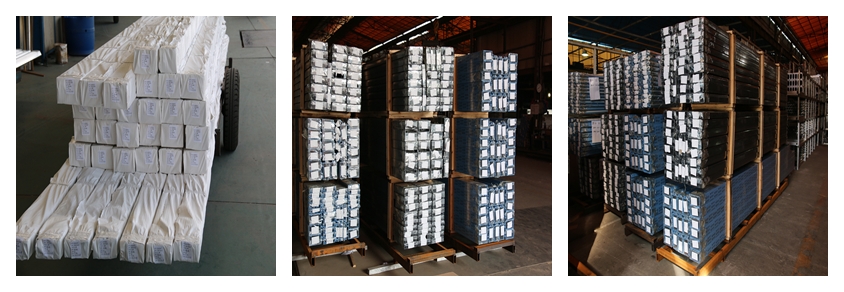
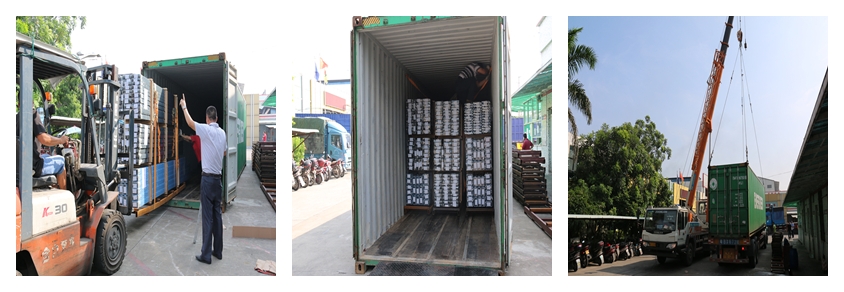
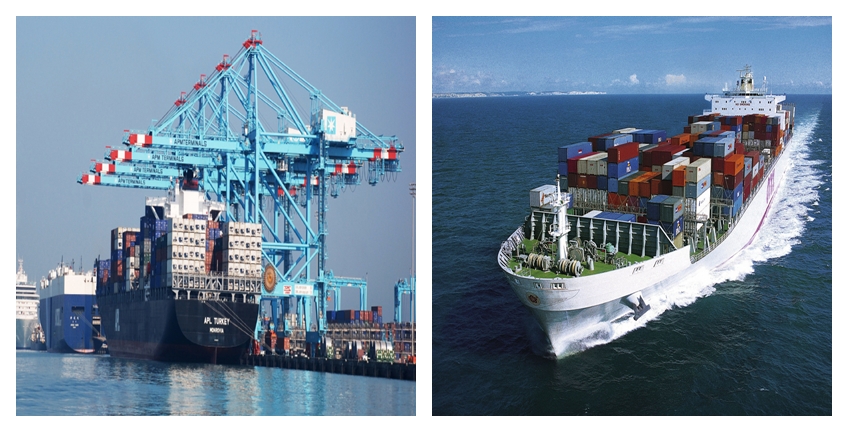
Our Services
Onsite Factory Services | Onsite Factory Services |
|
|
We factory also provides the following services:
Engineering design
Research and development
Design consulting
Photos
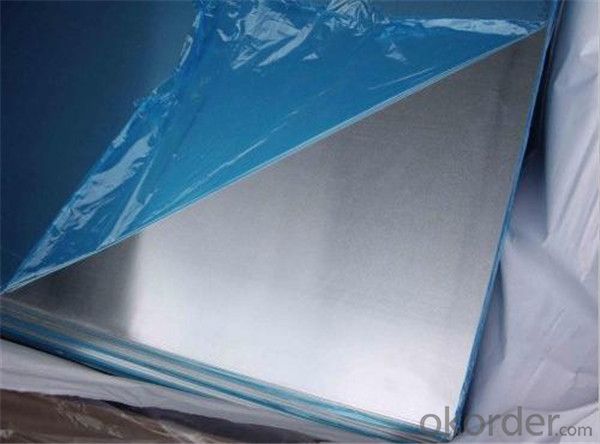
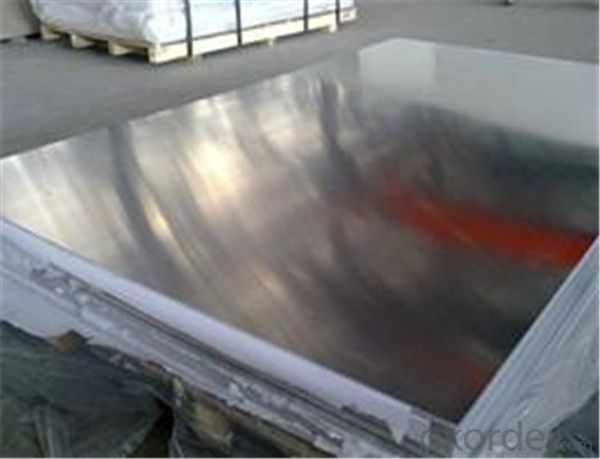
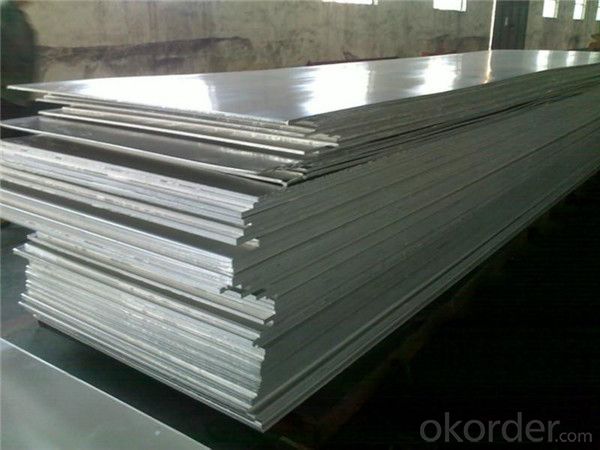
- Q: Does aluminum foil keep food warm or cool, or is it just a convenient material to cover food with?
- It can insulate food, depending on how thick it is or how many layers you use. Aluminum foil is multi-functional: 1) Acts as a lid if you don't have one for any pot or pan. 2) As you mentioned: its a convenient material to cover food. 3) Can be used for lining the drip tray on your stove top for easy clean up. 4) Can be used as a non-stick liner for sheet pans when baking cookies or brownies. 5) Fish can be wrapped in aluminium foil and then steamed in the oven.
- Q: Can the aluminum sheets be used for manufacturing chemical piping systems?
- Yes, aluminum sheets can be used for manufacturing chemical piping systems. Aluminum is known for its excellent corrosion resistance, which makes it suitable for handling various chemicals. It is also lightweight, making installation and maintenance easier. Additionally, aluminum has good thermal conductivity, allowing for efficient heat transfer in chemical processes. However, it is important to consider the specific requirements of the chemicals being transported and consult with experts to ensure that the aluminum sheets chosen have the necessary properties and are compatible with the chemicals to be used in the piping system.
- Q: why can aluminum sheet after oxide film removal react quicker with hydrochloric acid?
- the reason is very simple, the original aluminum sheet has a layer of dense oxide film AI2O3, which has prevented the inner aluminum sheet from reacting with hydrochloric acid. but after oxide film removal, aluminum sheet will directly contact hydrochloric acid, generating H2.
- Q: Are aluminum sheets resistant to staining?
- Indeed, staining is not a concern when it comes to aluminum sheets. This is due to the formation of a natural oxide layer on the surface of aluminum when it is exposed to air. The presence of this oxide layer serves as a safeguard, effectively preventing both staining and corrosion. Nevertheless, it is worth mentioning that extended contact with specific chemicals or acidic substances can still result in discoloration or staining on aluminum sheets. To maintain the impeccable appearance and durability of aluminum sheets, it is advisable to engage in regular cleaning and maintenance practices.
- Q: What are the different methods of surface laminating aluminum sheets?
- There are several methods of surface laminating aluminum sheets, each offering unique benefits and suitable for different applications. Some of the most common methods include: 1. Adhesive bonding: This involves applying an adhesive layer between the aluminum sheet and the desired surface material. The adhesive is typically cured through heat or pressure, forming a strong bond. This method is versatile and can be used with various surface materials like wood, plastic, or glass. 2. Roll bonding: Also known as cladding or cold roll bonding, this method involves sandwiching the aluminum sheet between two other metal sheets and applying high pressure to create a solid bond. Roll bonding is commonly used in the production of composite materials, such as aluminum-clad steel sheets. 3. Thermal spraying: This process involves melting or heating aluminum powder and spraying it onto the sheet surface using a thermal spray gun. The molten aluminum solidifies upon contact, forming a durable coating. Thermal spraying is often used for corrosion protection or as a base layer for subsequent surface treatments. 4. Powder coating: In this method, a dry powder paint is applied to the surface of the aluminum sheet electrostatically. The sheet is then heated, causing the powder to melt and form a smooth, protective coating. Powder coating provides excellent durability, resistance to impact, and a wide range of color options. 5. Anodizing: Anodization is an electrochemical process that enhances the natural oxide layer on the surface of aluminum sheets. By immersing the sheet in an electrolytic bath and applying an electric current, a controlled oxide layer is formed, providing corrosion resistance, improved adhesion for paint or adhesive, and aesthetic finishes. 6. Lamination with protective films: A protective film can be applied to the surface of the aluminum sheet to protect it during transportation, handling, or processing. These films are typically made of plastic and offer temporary protection against scratches, abrasions, and dirt. These are just a few of the many methods available for surface laminating aluminum sheets. The choice of method depends on factors such as the desired properties, intended use, and the specific requirements of the application.
- Q: How to solve the loose bonding of aluminum sheet and silica gel?
- Bonding silicone rubber needs surface treatment, after using silicone rubber surface treating agent of Kuer , you can bond them with 4211 adhesive.
- Q: Can aluminum sheets be used in aerospace industry?
- Aluminum sheets find common usage within the aerospace industry due to their numerous desirable qualities. One of the foremost advantages is their lightweight nature, a critical factor for both aircraft and spacecraft. This characteristic aids in reducing fuel consumption and increasing the capacity for payload. Another significant attribute of aluminum is its exceptional strength-to-weight ratio, which imparts structural integrity to aerospace components. Furthermore, aluminum exhibits high resistance to corrosion, ensuring longevity and durability within harsh environments. Additionally, its commendable thermal conductivity qualifies it for heat dissipation in aerospace systems. Moreover, aluminum boasts easy formability, enabling the manufacturing of intricate shapes and structures. In summary, the versatility, strength, lightness, and corrosion resistance of aluminum make it the material of choice in the aerospace industry for diverse applications, including aircraft frames, fuselage panels, wings, and engine components.
- Q: Are aluminum sheets suitable for architectural roofing?
- Yes, aluminum sheets are suitable for architectural roofing. Aluminum is a lightweight material that is resistant to corrosion, making it an ideal choice for roofing applications. It is also highly durable and can withstand harsh weather conditions, including extreme temperatures, UV radiation, and strong winds. Additionally, aluminum sheets are available in a variety of colors and finishes, allowing for flexibility in design and aesthetics. Moreover, aluminum is a sustainable and environmentally friendly material as it can be recycled indefinitely without losing its properties. Overall, aluminum sheets provide excellent performance and versatility, making them a popular choice for architectural roofing.
- Q: Can aluminum sheets be used for heat exchangers?
- Yes, aluminum sheets can be used for heat exchangers. Aluminum is widely used in heat exchangers due to its excellent thermal conductivity and corrosion resistance properties. Its lightweight nature also makes it a preferred choice for efficient heat transfer in various applications.
- Q: Is it possible to utilize aluminum sheets in the construction of environmentally friendly buildings?
- <p>Yes, you can use aluminum sheets to create a green building. Aluminum is a sustainable material due to its recyclability and energy efficiency in production. It has a high recycled content rate, reducing the need for raw material extraction. Additionally, aluminum's lightweight nature can lead to reduced energy consumption in transportation and construction. Its durability and resistance to corrosion can extend the life of a building, further contributing to sustainability. However, it's important to consider the entire lifecycle impact, including the energy used in aluminum production, and to source aluminum responsibly to ensure a truly green building.</p>
Send your message to us
Aluminum Sheets in Utah - Aluminum Sheet 1050 1.2mm 3mm 6mm Thick
- Loading Port:
- Shanghai
- Payment Terms:
- TT OR LC
- Min Order Qty:
- 5 m.t.
- Supply Capability:
- 100000 m.t./month
OKorder Service Pledge
OKorder Financial Service
Similar products
Hot products
Hot Searches
Related keywords
